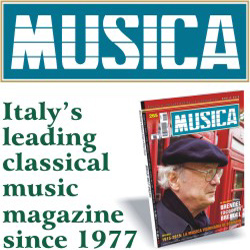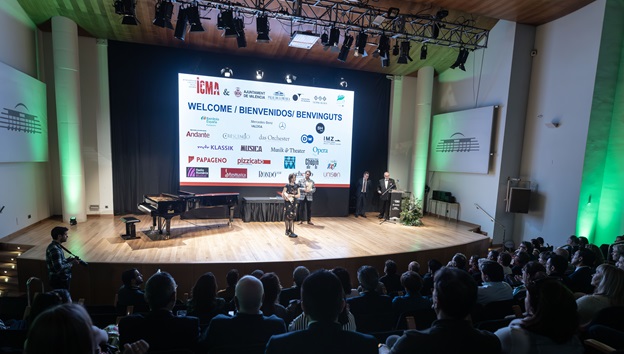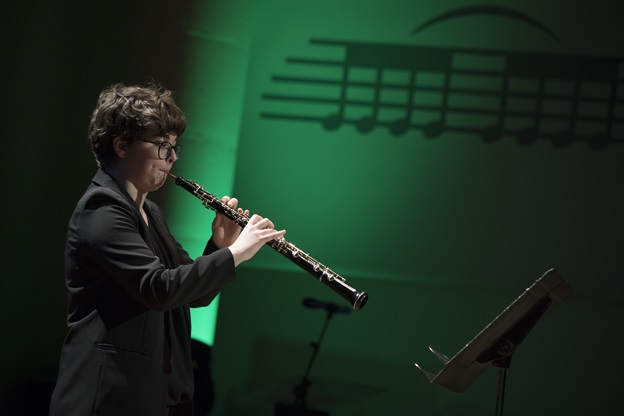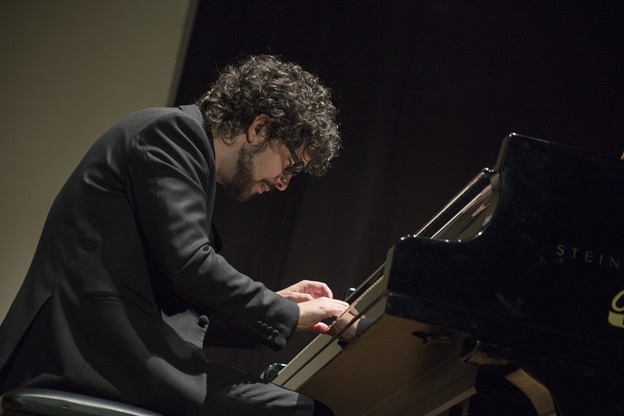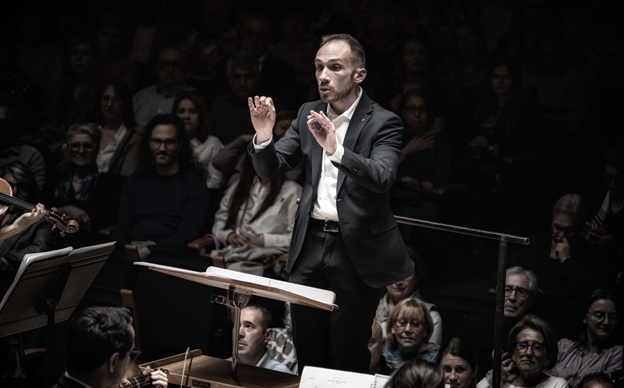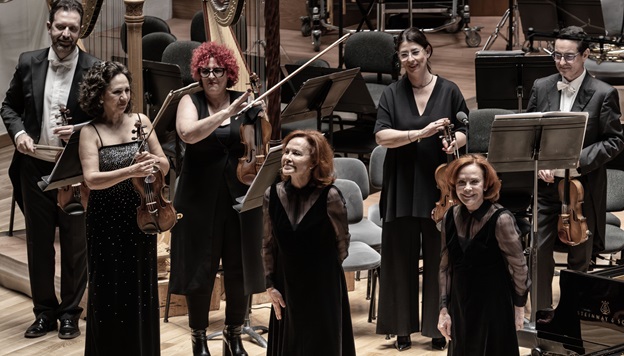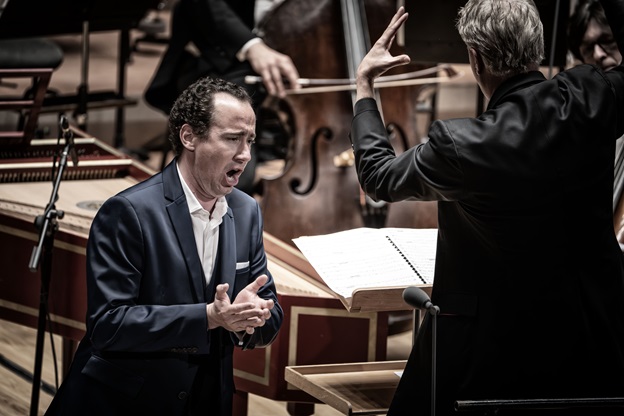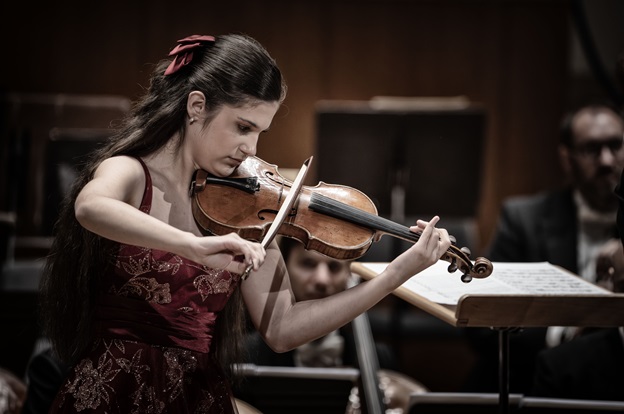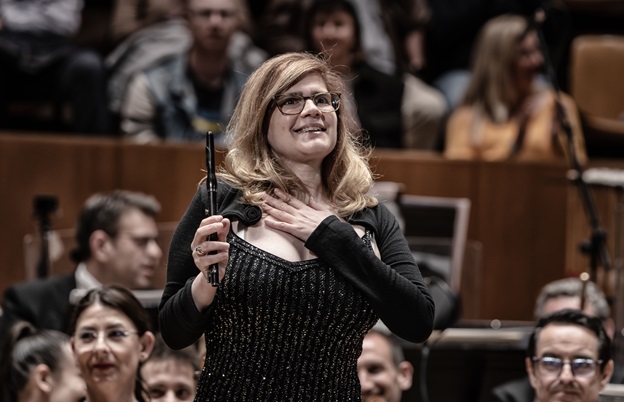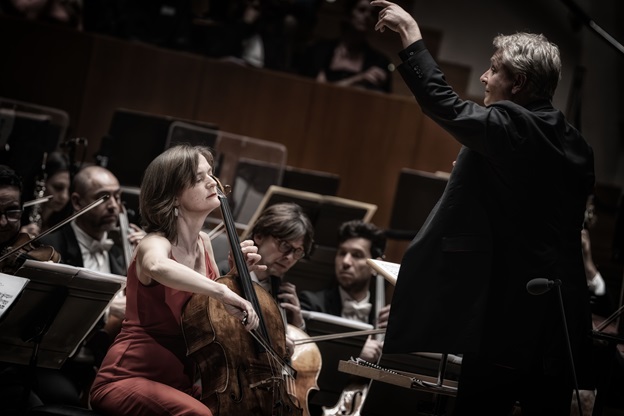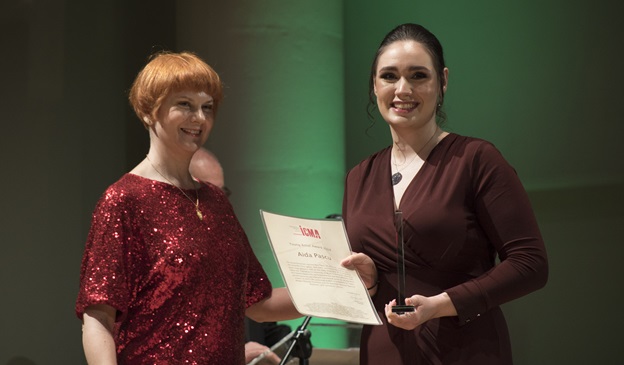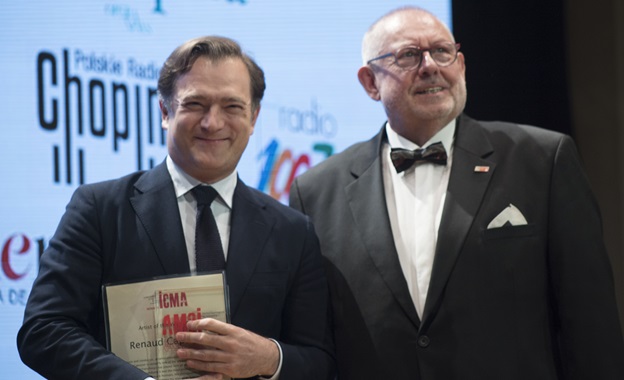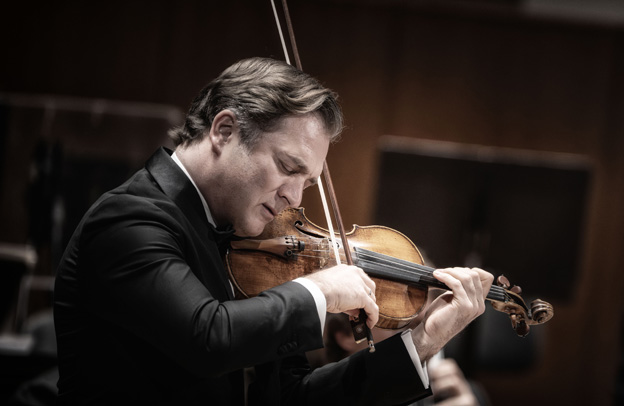The awards ceremony and gala concert of the International Classical Music Awards took place this weekend at the Palau de la Musica in Valencia with the Orquesta de Valencia conducted by its Music Director Alexander Liebreich as well as winners from this year’s ICMA panel. Uwe Krusch reports.
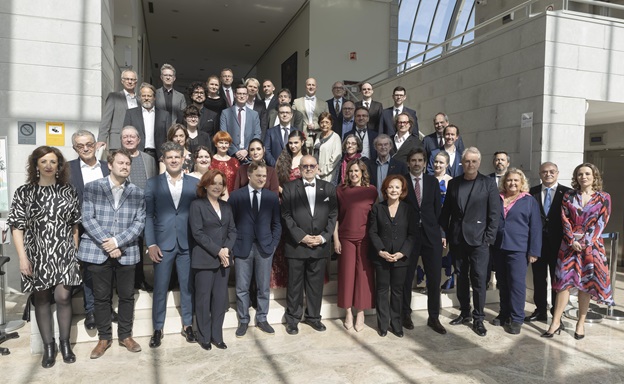
Winners, Jury and Valencia City Council at the Palau de la Musica
(c) Live Music Valencia/Palau de la Musica
The Awards Ceremony was hosted by ICMA President Remy Franck and Secretary General Nicola Cattò. In his introduction, Remy Franck emphasized the independence of the ICMA jury: « The independence from the music industry, unlike the Grammys or the German Opus, means a lot to us. It gives this jury its credibility and our awards a unique value ».
The afternoon ceremony honoring the winners provided a musical prelude to the evening’s gala concert. Two young artists from the 2024 host city of Valencia performed. Oboist Victoria Muñoz played four movements from Benjamin Britten’s Metamorphoses. With a versatile tone that emphasized the characteristics of the instrument, she was able to bring the characters of the work to life. The pianist Rubén Talón played the Fantasía Bética, the Andalusian Fantasy, which has a distinctly Mediterranean flavor, with powerful expression but also subtle nerve.
At the Gala Concert, which took place in the almost full main hall of the Palau de la Musica in Valencia, the Orquesta de Valencia was the main carrier of the music that was to be heard, which, once again, had been put together in a rigorous but also varied manner in accordance with the prizes and award winners.
The concert opened with the winner of the Composer’s Prize, Orazio Sciortino, conducting one of his own works. His recently completed Grande Bagattella per orchestra was a transparently composed work, largely rhythmically concise, but structured by two short, flat, calm passages that were served like sorbets between the hearty plates.
The next two pieces were performed by the Lifetime Achievement Award winners, the Güher and Süher Pekinel Duo. In the first movement of Johann Sebastian Bach’s Concerto in C Minor, BWV 1062, they formed their inimitable ensemble with the orchestra, which played in a small standing formation. Alexander Liebreich, the orchestra’s Music Director, also made his first appearance as conductor. All participants achieved a lively, flowing performance of the work.
The two prizewinners then performed Witold Lutosławski’s Fragments of the Paganini Variations as soloists on two pianos. With incredible assurance, they gave the music a virtuoso side as well as sensitive moments.
In the aria Impétueux torrent from Tarcis et Zélie by François Rebel & François Francœur, tenor Cyrille Dubois was able to use his tenor voice with exemplary declamatory certainty and a baroque vocal style, very expressively yet without slipping into the pathos inherent to the genre.
Lana Zorjan received the ICMA Discovery Award. In her solo introduction, she began her interpretation of Maurice Ravel’s Tzigane with a deeply plaintive reading rather than a soloist’s bravado from the outset. In the ensuing interplay with the orchestra under Alexander Liebreich, she kept her eye on the work and left a personal impression that made it clear why she was awarded the prize.
This was followed by Kaija Saariaho’s Dolce Tormento, a solo work for piccolo and voice in which Sharon Bezaly shone. Bezaly was able to achieve a really powerful performance in this composition, which ranged from the softest breath to the most penetrating tone known for this type of flute, but which always remained conciliatory, combined with her voice. The audience responded enthusiastically.
With the Rondo for Cello and Orchestra by Antonin Dvořák, Tanja Tetzlaff represented the Chamber Music Prize for the recording of Schubert works her brother Christian and the late pianist Lars Vogt. Tetzlaff, Liebreich and the orchestra sent the audience into the intermission highly satisfied with this lyrical and fluid performance.
After the intermission, Liebreich and his Orquesta de Valencia opened with the Lever du Jour from Maurice Ravel’s Daphnis et Chloé. This was a perfect example of Liebreich’s ability to mold the ensemble into a strong creative unit, exploring together the possibilities of color and orchestral culture.
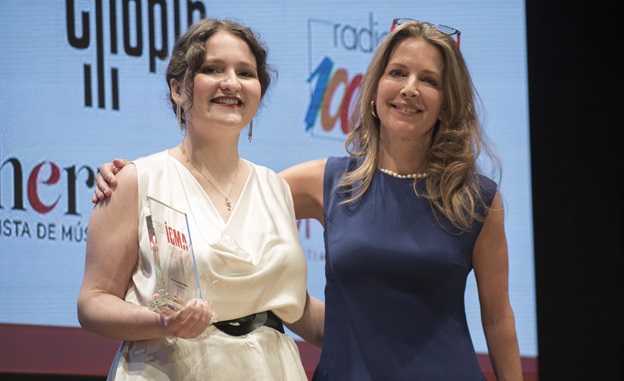
ICMA-Classeek Award winner Cassie Martin and Catarina Amon from Classeek
© Live Music Valencia/Palau de la Musica
The first movement of Mario Castelnuovo-Tedesco’s First Guitar Concerto introduced ICMA Classical Award winner Cassie Martin. She gave an uncompromising performance on an instrument that is often neglected in the classical concert hall, even though the work did not stretch her to the limit in terms of creative possibilities.
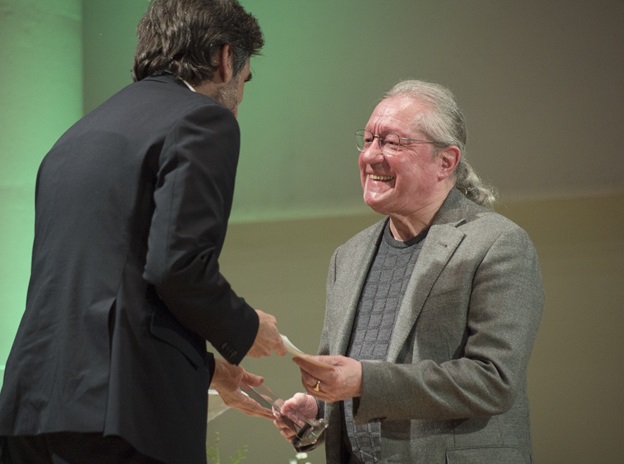
José Luis Moreno, President of the Palau de la Musica ands Cultural Counselor of the City Council of Valencia presented the Award to Maestro Cambreling
© Live Music Valencia/Palau de la Musica
A Special Achievement Award was presented to conductor Sylvain Cambreling. On this evening, he expressed his gratitude by conducting the third movement of L’Ascension by Olivier Messiaen. He was also able to inspire the Orquesta de Valencia to soaring heights. He opened his part with a sharpness reminiscent of Stravinsky. Then, together with the orchestra, he drew out all the facets of the music that make this work so fascinating.
With just a few conducting movements, Alexander Liebreich then entered the world of Giuseppe Verdi, specifically the aria Ernani, involami from Ernani, featuring the soloist and winner of the ICMA Young Artist of the Year Award, soprano Aida Pascu. Her singing complemented Liebreich’s and the orchestra’s performance in an unreservedly convincing manner, bringing the audience to a roaring applause at the end. With a stylistic assurance and vocal expressiveness that was overwhelming for such a young artist, covering the full range of her voice, she knew how to surprise and inspire.
Saving the best for last would surely be an inadequate formulation, as the concert had already produced so many magnificent performances and impressions. But the Artist of the Year, Renaud Capuçon, once again opened new worlds with his contribution. He played Theme and Variations by the little-known composer Charlotte Sohy for the first time with orchestra. This beautifully lyrical work unfolded such a lasting charm in ten minutes that one not only did not miss the lack of a virtuosic, circus-like conclusion, but was extremely happy to have been part of this discovery.
As was pointed out several times during the ceremony, especially the smaller and more innovative labels are constantly releasing exciting discoveries of unknown works. All the better to experience them in concert.
This fantastic concert probably left no listener unimpressed. It certainly gave me a lot of new ideas.







